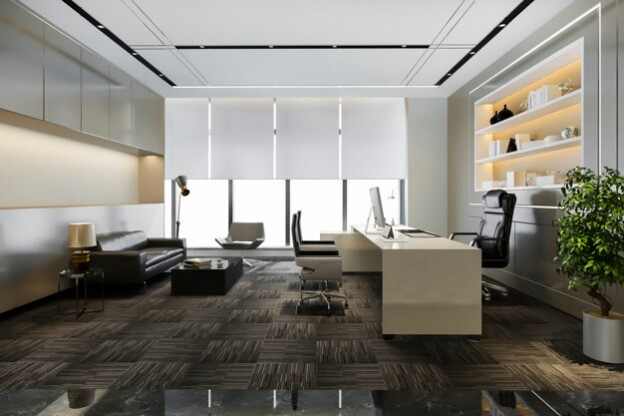Technology has stealthily revolutionized every aspect of our life in recent years: the way we interact, our consumption habits, leisure, and also the ways we work.
Integrating technology into office design is essential to achieve a modern, functional workspace, adapted to the times we live in. The possibilities offered by technology open the door to new ways of understanding the workspace, modifying and improving aspects such as communication, ergonomics, resource management, and even work dynamics.
The technology applied to design consists of much more than incorporating a technical floor or ceiling, or having many points of light; It is about projecting the space counting from the base on the possibilities that new technologies offer us to achieve the objectives of the company and respond to the needs of the workers.
In this article, we are going to see some examples of how to apply technology to office design.
SMART LIGHTING
Turning the light on and off is a gesture that can save financial resources for the company, but above all, proper lighting is essential to maintain the health, concentration and disposition of employees.
An intelligent lighting system makes it possible to adapt the light output and the points of light in service depending on the time of day, the people who are using the office, and even the activity that is being carried out. Programming different lighting profiles is a quick and easy way to respond to the changing needs of an office. For example, the appropriate light for a meeting with clients will not be the same as for intense work at the computer.
Intelligent lighting allows you to regulate the intensity, the color temperature, and the areas that must work at all times. If it is also combined with a system of blinds or automatic blinds the possibilities are endless.
INTERACTIVE FURNITURE
Interactive furniture is the future, it not only helps retain talent in the company but also improves worker performance and available insights.
Interactive furniture must not only be attractive and functional but must be accompanied by the appropriate technology that allows you to take full advantage of the extra functions it allows. In other words, the challenge is to turn furniture into work devices, highly adjustable to the needs of each employee.
A good example of this type of furniture is adjustable tables that allow you to work both standing and sitting, depending on the profile you select. This furniture accompanied by the appropriate software can become a health and productivity tool for employees.
OTHER WAYS TO APPLY TECHNOLOGY TO OFFICE DESIGN
From the incorporation of screens and electronic boards on the walls of the work areas to keep the different departments connected to the automatic doors, the control of devices by voice, or the automatic temperature taking at the entrances for epidemiological control -which we have internalized as a result of the Covid-19 pandemic-. The possibilities offered by technology are practically endless, so the real question is: what needs do you want to cover through design and new technologies?
